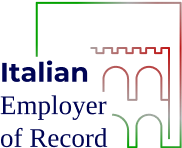29 January 2025
How to obtain work permits & visas in Italy: a complete guide
Relocating to Italy can be exciting, featuring a vibrant cultural scene, world-renowned cuisine, and career options in cities like Milan and Rome. Yet, before you immerse yourself in the Italian way of life, it’s essential to understand how to obtain the correct work visa and meet all permit requirements. If you’re new to local regulations, the country’s administrative processes may feel complex, and even small oversights risk delaying your plans to work there.
This guide will outline key points about work permits and visas in Italy, highlighting common pathways and actionable steps for a successful move. We’ll also look at an Employer of Record role in Italy, showing how it can lighten your administrative load and let you focus more on integrating into your new environment and pursuing professional goals.
1. Types of work permits & visas in Italy
Italy features several visa categories for non-EU/EEA nationals, each designed to accommodate specific job functions, skill levels, or employment durations. Here are the main pathways:
Nulla Osta for Subordinate Work (Work Permit for Employees)
- Overview: Commonly used by employers who intend to hire a non-EU national. The employer applies for a nulla osta (work authorisation) on your behalf before you apply for the visa.
- Sponsorship required: You must hold a confirmed job offer; the employer must prove that the role suits a non-EU hire.
- Duration & renewal: Typically valid for up to one or two years, with a possibility of renewal if conditions remain unchanged.
EU blue card
- Overview: A European scheme for highly skilled professionals. It requires a recognised higher education degree and a job contract meeting salary thresholds set by Italian law.
- Advantages: Offers a more streamlined approach to residency and can facilitate movement in other EU countries, under certain conditions.
- Suitability: Ideal if your position and qualifications surpass the usual salary and educational requirements.
Seasonal work visa
- Overview: Intended for short-term, often agricultural or tourism-related roles, typically valid for six to nine months.
- Eligibility: Must have an employer sponsorship in a sector that qualifies for seasonal work (e.g., farms, hotels, restaurants).
- Key point: Not suitable for long-term residency; switching to a permanent route can be tricky.
Self-employment visa
- Overview: For freelancers, entrepreneurs, or business owners wishing to operate in Italy. The process can be complex, with set quotas announced each year under the decreto flussi.
- Main requirements: Must demonstrate adequate funds, a viable business plan, and necessary licences or registrations.
- Duration: Usually valid for one or two years, with renewal contingent upon the venture’s success and compliance.
Investor visa
- Overview: Aimed at foreign nationals investing large sums in Italian businesses, government bonds, or philanthropic projects.
- Capital thresholds: Vary by investment type, with minimum amounts often reaching hundreds of thousands of euros.
- Benefit: Gives you residency rights in Italy, sometimes with fewer bureaucratic steps than traditional work visas.
For official details on visa categories and application requirements, refer to the Italian Ministry of Foreign Affairs. You can also check the Italian Interior Ministry for updates on work authorisation and relevant decrees.
2. Key challenges expats face
Securing a work permit in Italy can be more challenging than it appears. You may need evidence of qualifications, financial stability, and a valid job contract, and overlooking a single requirement can halt your authorisation.
Because Italy frequently updates its quotas and administrative procedures, using outdated information can confuse or miss a crucial step. Errors like overstaying your visa or misstating your job position can lead to fines, the revocation of your permit, or even future entry bans.
This is compounded if you juggle relocation logistics, work preparations, and family obligations. By collaborating with an Employer of Record, you can avoid these pitfalls and ensure a smoother path to living and working in Italy.
3. How Employer of Record (EOR) services simplify the process
An Employer of Record (EOR) in Italy can substantially reduce the administrative and legal complexities often tied to work permit and visa requirements. Rather than forming a local entity or navigating every step of immigration, an EOR becomes your local representative, ensuring each stage—from visa sponsorship to contract drafting—adheres to Italian labour regulations.
An Employer of Record in Italy can assist foreign companies and expats by minimising the administrative obstacles often tied to Italian regulations:
- Local expertise: EORs stay updated on Italian labour laws, quotas, and tax rules, reducing the chance of errors.
- Streamlined applications: They handle HR, onboarding, and payroll compliance, so you can concentrate on personal tasks like house-hunting or language classes.
- Risk reduction: By ensuring your employment contract aligns with Italian requirements, EORs help you avoid penalties and complications during your visa application.
For example, Lucas, a recent graduate from Brazil, had his heart set on moving to Florence for a marketing role with a local fashion start-up. Despite having a valid job offer, he felt overwhelmed by the paperwork, unsure how to secure the correct work permit. After days sifting through complex visa guidelines, he contacted an employer of record in Italy. They reassured him that his contract met the legal criteria and walked him through every requirement—from gathering financial statements to scheduling the consulate appointment. Within a few weeks, Luca was on a plane to Florence, relief washing over him as he realised the EOR had handled the logistics, letting him focus on his new career and life in Italy.
By overseeing these processes, an EOR frees you to focus on the more personal aspects of your move, such as finding accommodation or learning Italian. Whether you’re on a short-term contract or seeking permanent residency in Italy, having an EOR by your side minimises the risk of compliance mistakes, shortens application timelines, and offers peace of mind.
4. Your step-by-step guide to obtaining a work permit in Italy
Below is a roadmap for how to get a work visa in Italy, helping you navigate from job offer to arrival:
- Determine the right visa category
Match your situation with the suitable permit or visa type (e.g., nulla osta for subordinate work, EU Blue Card, or self-employment if you’re a freelancer). - Gather crucial documents
Expect to provide a valid passport, proof of health insurance, financial statements, and your job contract. If you’re going for the EU Blue Card, you’ll need evidence of a higher education degree or equivalent professional experience. - Submit the work authorisation request
If you’re applying for a subordinate work permit, your employer must file a nulla osta application through the relevant Italian authorities. Once approved, you’ll apply for a visa at your country’s Italian embassy or consulate. - Follow up and await approval
Processing times vary based on local workloads and quota availability (when relevant). Keep track of your application via official portals or by contacting the embassy. - Arrive in Italy and register locally
On entering Italy, you have eight days to apply for a permesso di soggiorno (residence permit) at your local post office. If your visa type allows, you’ll also register for healthcare (Servizio Sanitario Nazionale).
You can consult the Italian Ministry of Foreign Affairs for comprehensive information on specific visa application details. To access residency permit forms and guidance on registration, visit the Polizia di Stato website.
5. Making your transition smoother with professional support
Keep an eye on official Italian government sites and reputable legal advisories, as rules can shift due to economic conditions or EU-level mandates. The annual decreto flussi also determines how many non-EU workers can enter for certain roles.
By teaming up with an Employer of Record, you eliminate the requirement to form an Italian entity or decipher all local laws on your own. An EOR ensures that each step—from drafting a compliant job offer to handling payroll—meets the country’s legal standards, giving you peace of mind throughout your relocation.
If you’re aiming for extended residency or eventual citizenship, be mindful of how your chosen visa impacts those goals. Many expats start on a temporary work permit, then transition to other statuses once they’ve accumulated sufficient years in Italy.
Conclusion: your next steps
Navigating work permits & visas in Italy can appear daunting, but it’s far more manageable when you understand the routes available, meet the proper documentation requirements, and consider professional assistance.
Identify which visa aligns with your skill set or investment goals—be it the EU Blue Card or the nulla osta route. Monitor local guidelines for quota periods, salary benchmarks, and procedural changes to stay within the law. Partnering with an Employer of Record in Italy or seeking counsel from immigration specialists can drastically reduce administrative hassles.
If you’re ready to start your Italian adventure, contact us to discover how EOR services can expedite your visa process, ensure compliance, and help you embrace everything Italy has to offer—both professionally and personally. Buon viaggio!



